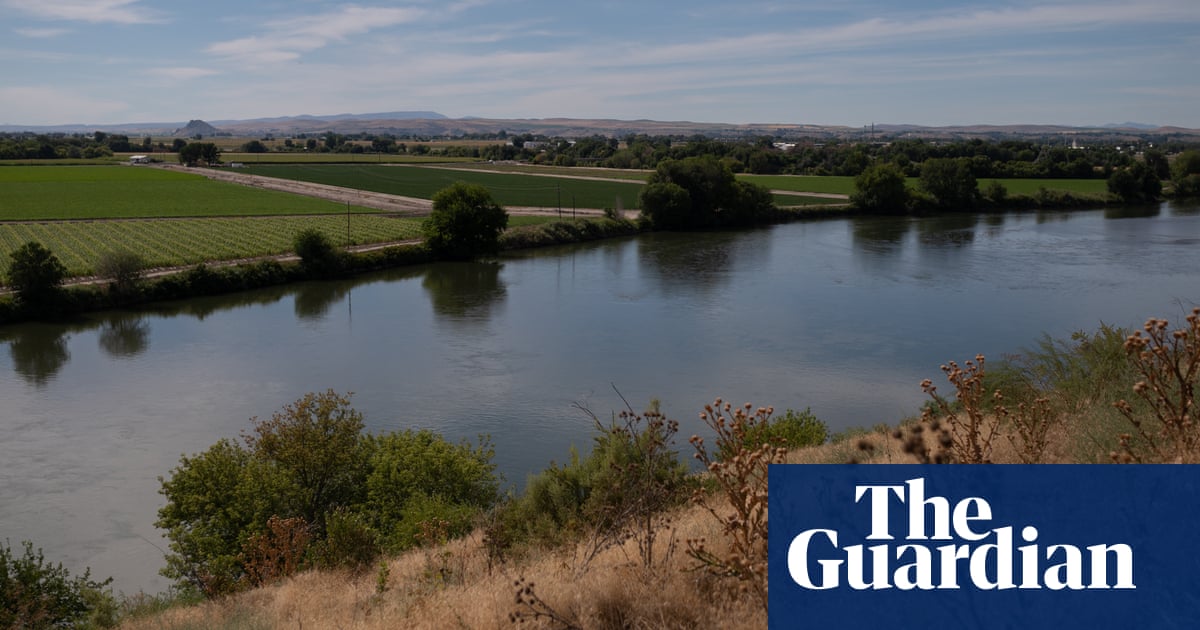Donald Trumphas pulled the US federal government from a historic agreement to recover thesalmon populationin the Pacific north-west, calling the plan “radical environmentalism”.
Apresidential memorandumissued by Trump on Thursday removes the US from a deal brokered byJoe Bidenwith Washington, Oregon and four Native American tribes to work to restore salmon populations and develop clean energy for tribes.
Tribes have for decades claimed that four hydroelectric dams on thenorth-west’s Snake Riverhavedepleted salmonpopulations. The government had committed to analyzing the impact of the dams.
That agreement has now been deleted by the US president, with the order stating that he “continues to prioritize our nation’s energy infrastructure and use of natural resources to lower the cost of living for all Americans over speculative climate change concerns”.
The region’s tribes condemned the decision. Gerald Lewis, the chair of the Yakama Tribal Council, said that Trump’s move “echoes the federal government’s historic pattern of broken promises to tribes, and is contrary to president Trump’s stated commitment to domestic energy development”.
The deal, known as the Resilient Columbia Basin Agreement, was reached in late 2023 and heralded by the Biden administration, tribes and conservationists as historic. It allowed for a pause in decades of litigation over the harm the federal government’s operation of dams in the north-west has done to the fish.
Under it, the federal government said it planned to spend more than $1bn over a decade to help recover depleted salmon runs. The government also said that it would build enough new clean energy projects in the Pacific north-west to replace the hydropower generated by the Lower Snake River dams – the Ice Harbor, Little Goose, Lower Monumental and Lower Granite – should Congress ever agree to remove them.
Conservations groups, Democratic members of Congress and the north-west tribes criticized Trump’s action.
“Donald Trump doesn’t know the first thing about the northwest and our way of life – so of course, he is abruptly and unilaterally upending a historic agreement that finally put us on a path to salmon recovery, while preserving stable dam operations for growers and producers, public utilities, river users, ports and others throughout the Northwest,” Patty Murray, a Democratic US senator for Washington, said in a written statement. “This decision is grievously wrong and couldn’t be more shortsighted.”
The Columbia River Basin, an area roughly the size of Texas, was once the world’s greatest salmon-producing river system, with at least 16 stocks of salmon and steelhead. Today, four are extinct and seven are listed under the Endangered Species Act. Another iconic but endangered north-west species, a population of orca, or killer whales, alsodepend on the salmon.
The construction of the first dams on the main Columbia River, including the Grand Coulee and Bonneville dams in the 1930s, provided jobs during the Great Depression, as well as hydropower and navigation.
But the dams are also main culprit behind the salmon’s decline, and fisheries scientists have concluded that breaching the dams in eastern Washington on the Snake River, the largest tributary of the Columbia, would be the best hope for recovering them.
The tribes, which reserved the right to fish in their usual and accustomed grounds when they ceded vast amounts of land in their 19th century treaties with the US, warned as far back as the late 1930s that the salmon runs could disappear, with the fish no longer able to access spawning grounds upstream.
North-western Republicans in Congress had largely opposed the agreement, warning that it would hurt the region’s economy, though in 2021 Mike Simpson, a Republican representative for Idaho, proposed removing the earthen berms on either side of the four Lower Snake River dams to let the river flow freely, and to spend $33bn to replace the benefits of the dams.
The tribes and the environmental law firm Earthjustice said they would continue working to rebuild salmon stocks.
“Unfortunately, this short-sighted decision to renege on this important agreement is just the latest in a series of anti-government and anti-science actions coming from theTrump administration,” Earthjustice senior attorney Amanda Goodin said.
Associated Press contributed reporting
